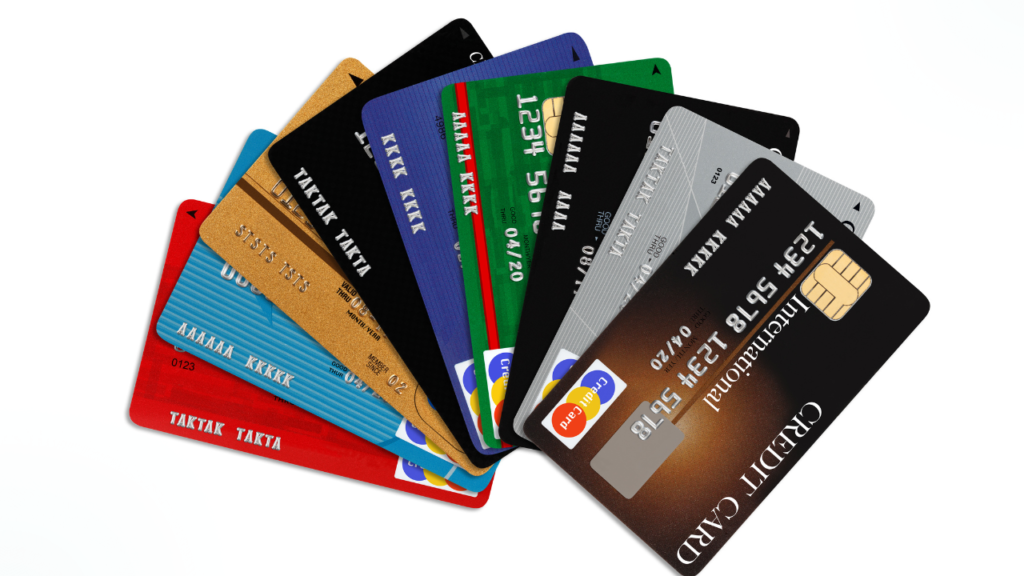If you’re struggling with credit card debt and finding it difficult to keep up with payments, negotiating with your credit card company may be an option worth considering.
Credit card debt negotiation is a process in which you work with your creditor to try and come to an agreement on reducing the amount you owe or creating a payment plan that’s more manageable for you. In this guide, we’ll explore the steps in negotiating credit card debt and provide tips to help you achieve a successful outcome.
Table of Contents
ToggleWhat is credit card debt negotiation?
Credit card debt negotiation, also known as debt settlement, or credit card debt forgiveness is a process where a debtor negotiates with their creditors to settle their credit card debt for a reduced amount. Debt negotiation aims to lower the overall amount owed and create a more manageable payment plan for the debtor.
This negotiation typically involves working with a debt settlement company or a lawyer who can negotiate with the credit card company or companies on the debtor’s behalf. The debtor may be required to make a lump-sum payment or a series of payments to the creditor in exchange for a reduced balance on their credit card debt.

Why negotiate credit card debt?
Negotiating credit card debt can be a good option for individuals who are struggling to make their monthly payments due to financial hardships such as job loss, medical expenses, or other unexpected circumstances. Individuals can reduce their outstanding balance, interest rates, or fees by negotiating with their creditors, making their debt more manageable and affordable. Negotiating credit card debt can also help individuals avoid the negative consequences of defaulting on their debts, such as damage to their credit score or legal action by creditors.
How does credit card debt negotiation work?
Credit card debt negotiation typically involves negotiating with a creditor or a debt collection agency to settle outstanding credit card debt for less than the full amount owed; This can be done by negotiating a lump sum payment or a payment plan that is less than the total balance. The goal of credit card debt negotiation is to reach a mutually beneficial agreement for both the debtor and creditor, allowing the debtor to repay the debt and the creditor to recover some of the outstanding balance.
To start the negotiation process, the debtor typically contacts the creditor or debt collection agency and expresses their desire to settle the debt. From there, the creditor or agency may make an initial offer, which the debtor or their representative can counter.
Negotiations may continue until a mutually acceptable agreement is reached, at which point the debtor will make the agreed-upon payment(s), and the debt will be considered settled. Credit card debt negotiation can impact credit scores and should be approached carefully, evaluating and understanding the possible consequences.
Preparing for Credit Card Debt Negotiation
Preparing for credit card debt negotiation involves:
- Assessing your current financial situation.
- Organizing your debts and expenses.
- Determining how much you can realistically afford to pay.
Research different debt relief options and learn about the negotiation process to increase your chances of success. Additionally, gathering all relevant documents, such as credit card statements and income tax returns, can be helpful before beginning negotiations.

Assessing your financial situation
Assessing your financial situation is important in preparing for credit card debt negotiation. Before entering into negotiations with your creditors, it’s important to understand your financial situation clearly, including your income, expenses, and debts. By assessing your financial situation, you can determine how much you can realistically afford to pay toward your credit card debt and devise a win-win strategy that works best for you.
Reviewing your credit card statements and credit report
Before negotiating your credit card debt, reviewing your credit card statements and credit report is important; this will help you clearly understand your outstanding balance, interest rates, fees, and other charges. Reviewing your credit report will also give you an idea of your credit score, which can impact the outcome of your negotiation.
Check for any errors or inaccuracies on your credit report that could affect your credit score. By being familiar with your credit card statements and credit report, you will be better prepared to negotiate with your credit card company.
Creating a budget and payment plan
Creating a budget and payment plan is essential in preparing for credit card debt negotiation. Before entering into negotiations with your credit card company, it is important to clearly understand your current financial situation and how much you can realistically afford to pay toward your debt.
To create a budget, list all your monthly expenses, including rent or mortgage payments, utilities, food, transportation, and any other necessary expenses. Next, subtract your total monthly expenses from your monthly income to determine how much money you have left over to put toward paying off your credit card debt.
Once you clearly understand your monthly budget, you can start creating a payment plan. Consider using the debt snowball method, which focuses on paying off your smallest debts first while making minimum payments on more significant debts. As you pay off smaller debts, you can apply those payments towards larger debts, helping you to make progress towards becoming debt-free.
Gathering information to support your case
Gathering documentation is an essential step in preparing for credit card debt negotiation. The documentation will help you support your case and demonstrate your financial situation to the credit card company.
You should gather all relevant financial records, including credit card statements, bank statements, tax returns, and pay stubs. You may also need to provide proof of any unexpected expenses or changes in your financial circumstances, such as medical bills or job loss.
Having this documentation ready before negotiating can help you make a stronger case and potentially lead to a better outcome in your negotiations.

Negotiating Credit Card Debt
Negotiating credit card debt involves working with creditors or a debt settlement company to reach a mutually acceptable agreement to reduce your outstanding balance. This process consists in presenting your case and providing evidence to support your financial hardship and inability to repay the total amount.
You will then work with the creditor or debt settlement company to negotiate a reduced payoff amount and payment plan. It’s important to be aware of debt negotiation’s potential risks and drawbacks, such as negative impacts on your credit score and tax consequences.
Contacting your credit card company
Contacting your credit card company is the first step in negotiating your credit card debt. You can call the customer service number on the back of your card or use the online messaging system to contact a representative. It’s important to be prepared with your financial information and the details of your proposal for repayment.
Be honest and straightforward about your situation and let them know you want to find a solution that works for both parties. It’s also important to be persistent and follow up on any promises or agreements made during the negotiation process.
Explaining your financial hardship
When negotiating credit card debt, it’s important to explain to your credit card company the financial hardship that led to your inability to pay it; This may include circumstances such as job loss, medical bills, divorce, or other unexpected expenses that have affected your ability to make payments.
By explaining your situation clearly and honestly, you can negotiate a more favorable payment plan or settlement agreement with your credit card company. It’s important to have supporting documentation to back up your claims and to be prepared to negotiate with your credit card company to find a solution that works for both parties.
Requesting a debt settlement or payment plan
One option when negotiating credit card debt is to request a debt settlement or payment plan from your credit card company; This involves proposing a reduced payoff amount or a more manageable payment plan that fits your current financial situation.
Be prepared to explain your financial hardship and provide supporting documentation to prove your inability to pay off the total amount owed. It’s important to approach the negotiation with a clear understanding of your financial situation, your credit card agreement terms, and your goals for resolving the debt.

Negotiating interest rates, fees, and penalties
When negotiating credit card debt, it’s essential to consider the various factors that contribute to your overall balance. Interest rates, fees, and penalties can all significantly impact the total amount owed, so it’s important to negotiate these aspects of your debt in addition to the principal balance.
Negotiating lower interest rates, waiving fees, or reducing penalties can make your debt more manageable and increase the likelihood of successfully paying it off. Be prepared to present your case and provide documentation to support your request for more favorable terms.
Reaching a settlement agreement
Reaching a settlement agreement is the final step in negotiating your credit card debt. Once you and your credit card company have agreed on a payment plan or debt settlement, you will receive a written agreement outlining the settlement terms, including the amount you will pay, the interest rate, and any other agreement terms.
It is essential to carefully review and understand the terms of the agreement before signing and to make sure you can meet the payment obligations outlined in the agreement. Once you have signed the agreement and made your first payment, you will be on your way to paying off your credit card debt and improving your financial situation.
Following Up After Credit Card Debt Negotiation
Following up after credit card debt negotiation is an important step to ensure the negotiated agreement is honored and avoid future issues; This includes reviewing and understanding the terms of the agreement, making payments on time, and staying in contact with the credit card company to ensure that the agreement is being followed. Additionally, it’s important to continue tracking your credit score and credit report to ensure that any changes are accurate and reflect the negotiated agreement.
Reviewing the settlement agreement
After reaching a settlement agreement with your credit card company, it is essential to carefully review the terms of the agreement to ensure that you understand your obligations and responsibilities. The settlement agreement should clearly outline the payment terms, including the total amount owed, the payment schedule, and any interest, fees, or penalties that will be waived or reduced.
Reviewing the settlement agreement can help you ensure that the agreement accurately reflects the terms you negotiated with the credit card company. It can also help you identify any potential issues or discrepancies you may want to address with the credit card company before signing the agreement.
Make sure to read the agreement thoroughly and ask any questions you may have before signing. It is also important to keep a copy of the settlement agreement for your records in case you need to reference it in the future.
Making payments on time and in full
After successfully negotiating credit card debt, making payments on time and in full as per the settlement agreement is crucial. Missing payments or making late payments can result in penalties and late fees, and it may even nullify the settlement agreement. Moreover, failing to adhere to the payment plan could result in legal action, wage garnishment, or seizure of assets.
To avoid these consequences, making payments on time and in full every month is essential. One effective way to ensure timely payments is to set up automatic payments through your bank account; This ensures that payments are made on the due date without any effort.
If you cannot make a payment, it is vital to contact your credit card company immediately to discuss your options. They may be willing to adjust your payment plan or negotiate new terms if you communicate with them in advance.
Making payments on time and in full helps you avoid additional fees and penalties and also helps improve your credit score. By paying off your debts, you demonstrate responsible financial behavior and show potential lenders that you can manage your finances effectively.
Monitoring your credit report and credit score
After negotiating your credit card debt and following through with your settlement agreement, monitoring your credit report and score regularly is important to ensure that your credit card company is reporting your payments correctly and that your credit score accurately reflects your improved financial situation.
You can obtain a free copy of your credit report from each of the three major credit reporting agencies once a year. Reviewing these reports can help you identify any errors or discrepancies that need to be addressed. Additionally, keeping an eye on your credit score can help you track your progress as you improve your credit.
If you notice any issues with your credit report or credit score, you should contact the credit reporting agency and your credit card company to resolve the matter promptly. By staying on top of your credit, you can ensure that you continue to make progress toward achieving your financial goals.
Seeking professional help if needed
If you find the credit card debt negotiation process overwhelming or need more assistance, consider seeking professional help. A credit card debt lawyer or debt settlement company can guide how to negotiate with your credit card company and help you develop a plan to pay off your debts.
However, it’s important to do your research and choose a reputable and trustworthy professional to work with. Remember that fees may be associated with these services, so ensure you understand the costs before signing up. Additionally, be cautious of any company that guarantees they can settle your debts or promises a specific outcome. It’s important to remember that credit card debt negotiation can be complex, and there are no guarantees of success.
FAQ
Is it possible to negotiate credit card debt on your own?
Yes, it is possible to negotiate credit card debt on your own by contacting your credit card company and explaining your financial hardship. However, seeking professional help, such as a credit counseling agency or a debt settlement company, may be beneficial to negotiate on your behalf.
Can I negotiate a settlement for less than the full amount owed?
Yes, it is possible to negotiate a settlement for less than the full amount owed. Credit card companies may be willing to settle for a lower amount if they receive payment faster and avoid the risk of the debt becoming uncollectible.
Will negotiating credit card debt hurt my credit score?
Negotiating credit card debt may have a negative impact on your credit score in the short term, as it may be reported as a partial payment or settlement. However, it is important to prioritize paying off your debt and improving your financial situation in the long term.
How long does the credit card debt negotiation process take?
The length of the credit card debt negotiation process can vary depending on the complexity of the situation and the willingness of the credit card company to negotiate. Reaching a settlement agreement may take a few weeks to several months.
What happens if I can’t make the negotiated payments?
If you cannot make the negotiated payments, contact your credit card company as soon as possible to explain the situation and discuss alternative options. Failure to pay a settled debt may result in legal action or damage to your credit score.
Last thought
In conclusion, credit card debt negotiation can be valuable for individuals struggling to pay off their debt. It involves assessing your financial situation, preparing a budget and payment plan, gathering documentation, contacting your credit card company, and negotiating a settlement agreement.
Following up after the negotiation by reviewing the settlement agreement, making payments on time and in full, monitoring your credit report and score, and seeking professional help if needed, can also ensure a successful outcome. With patience and persistence, credit card debt negotiation can lead to financial freedom and peace of mind.











